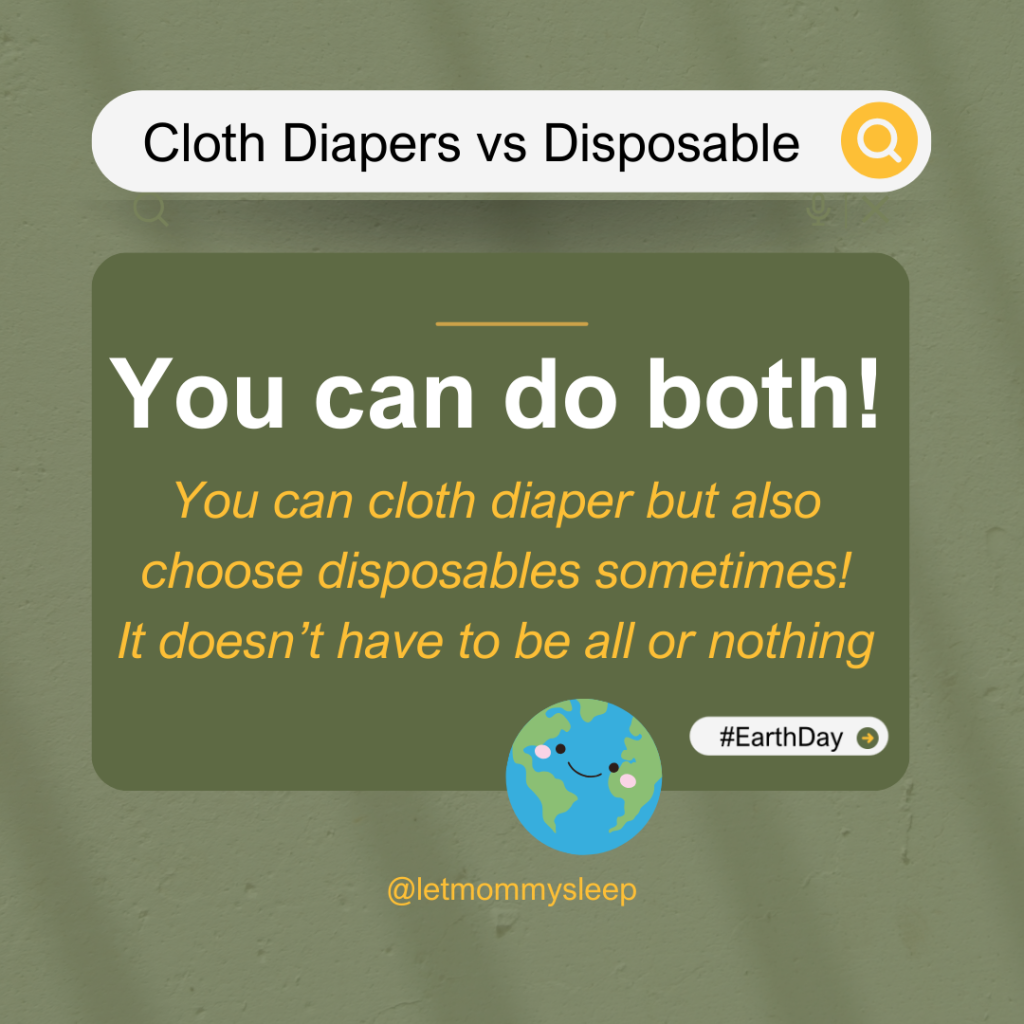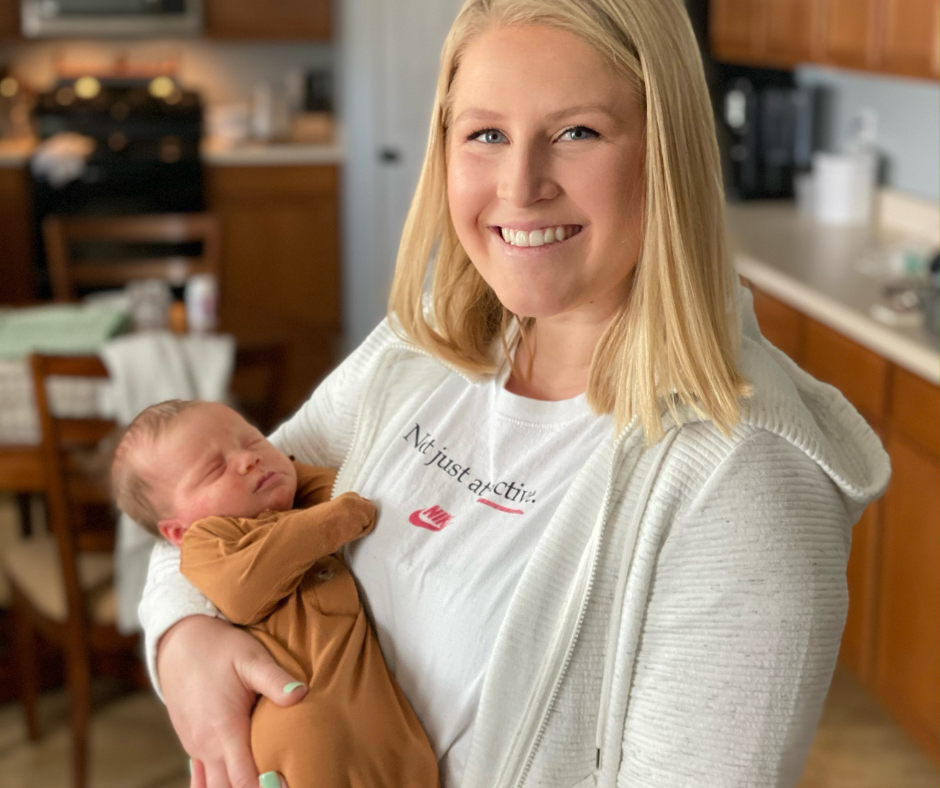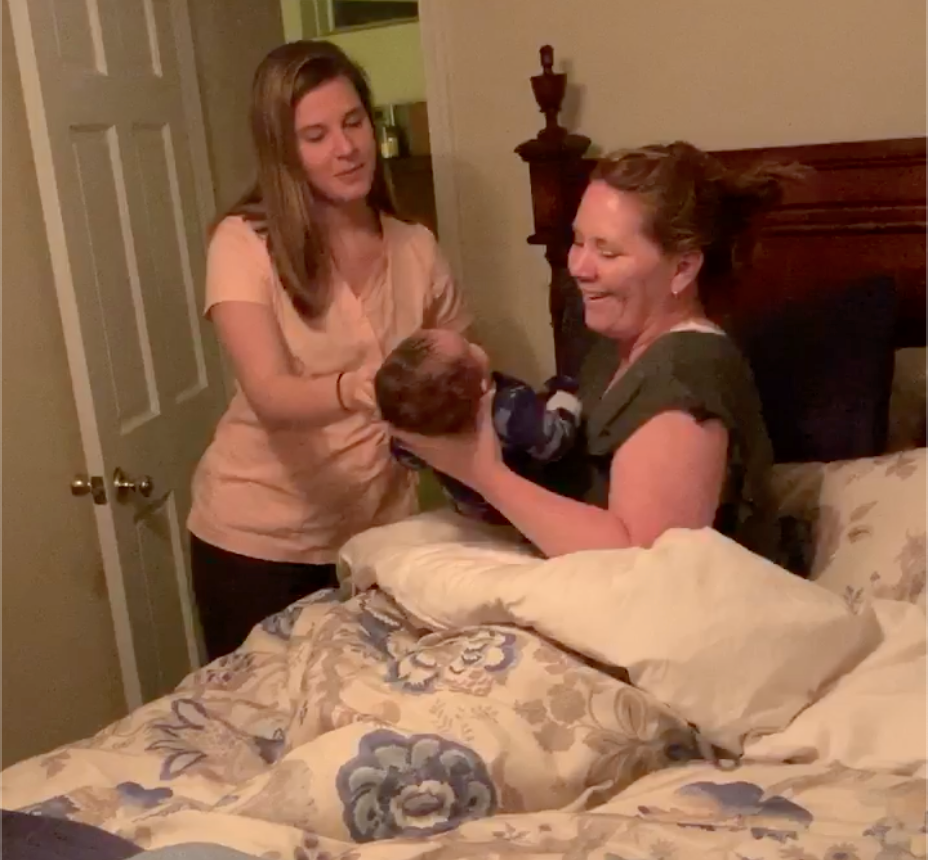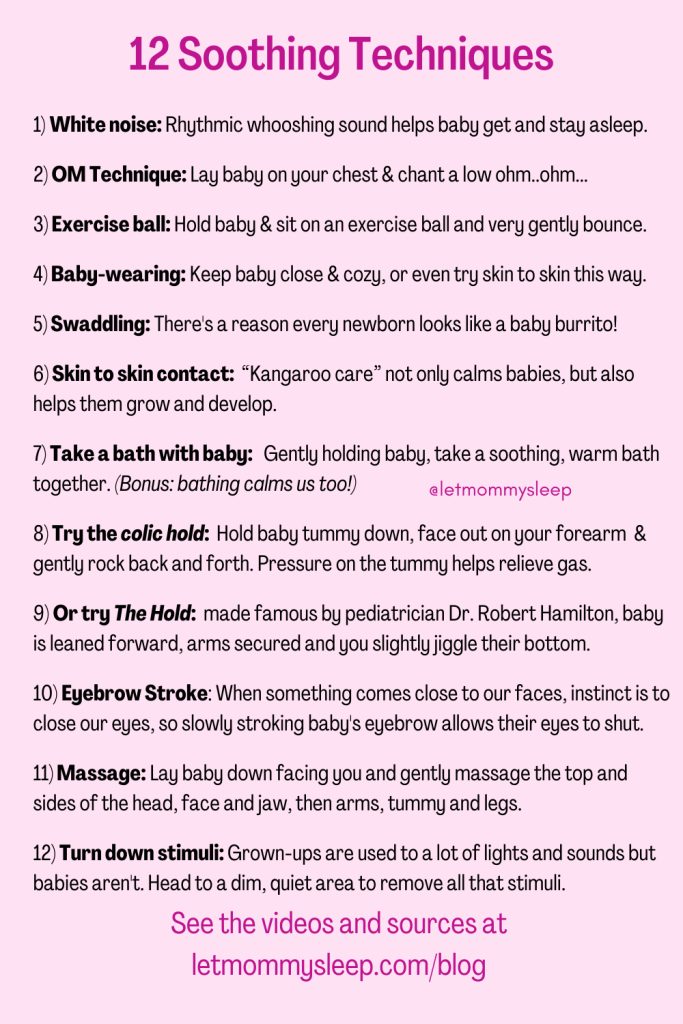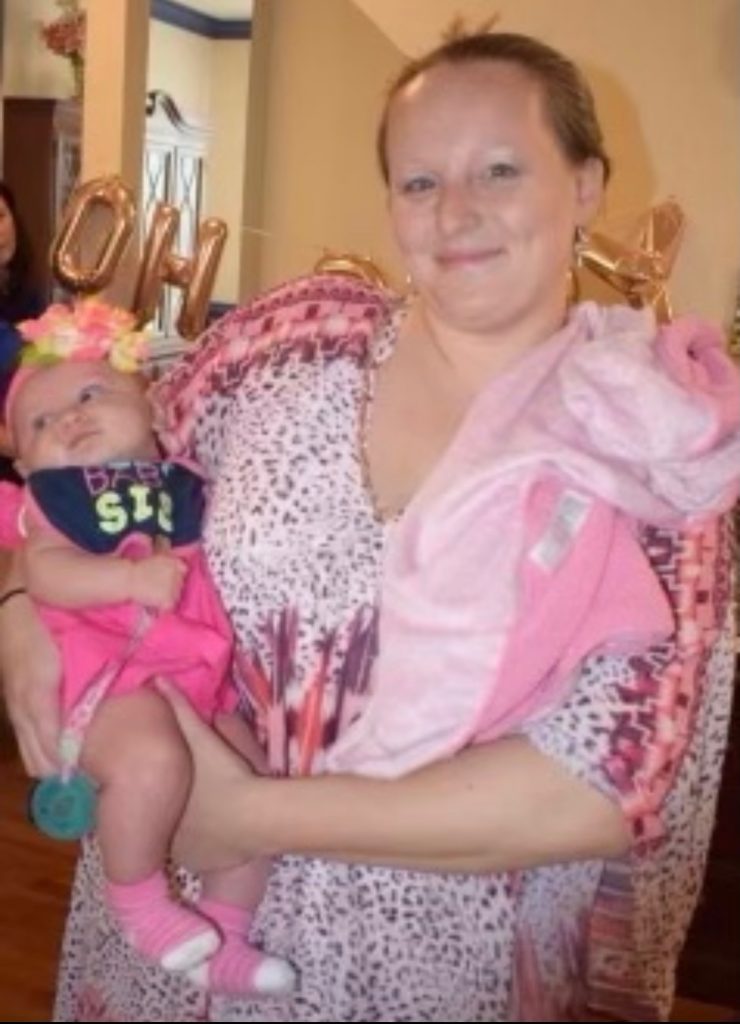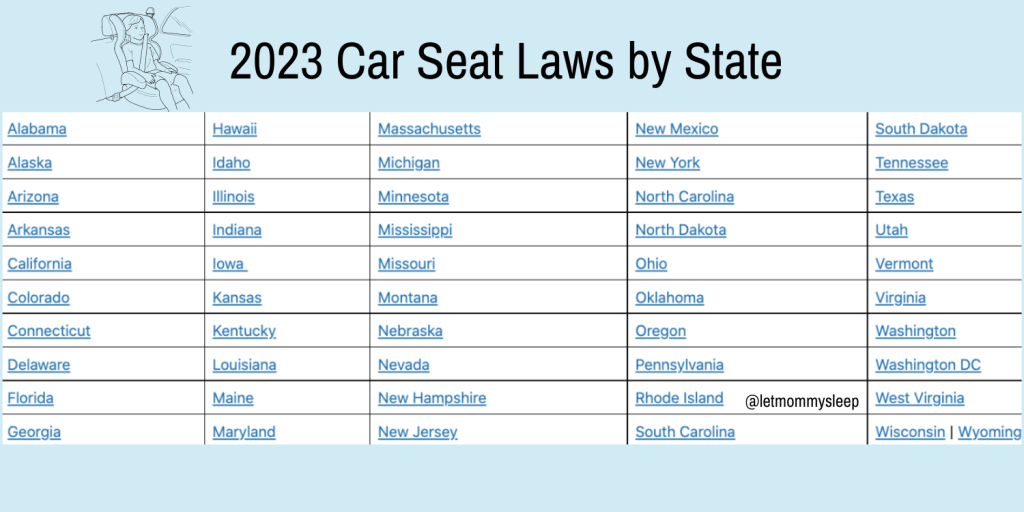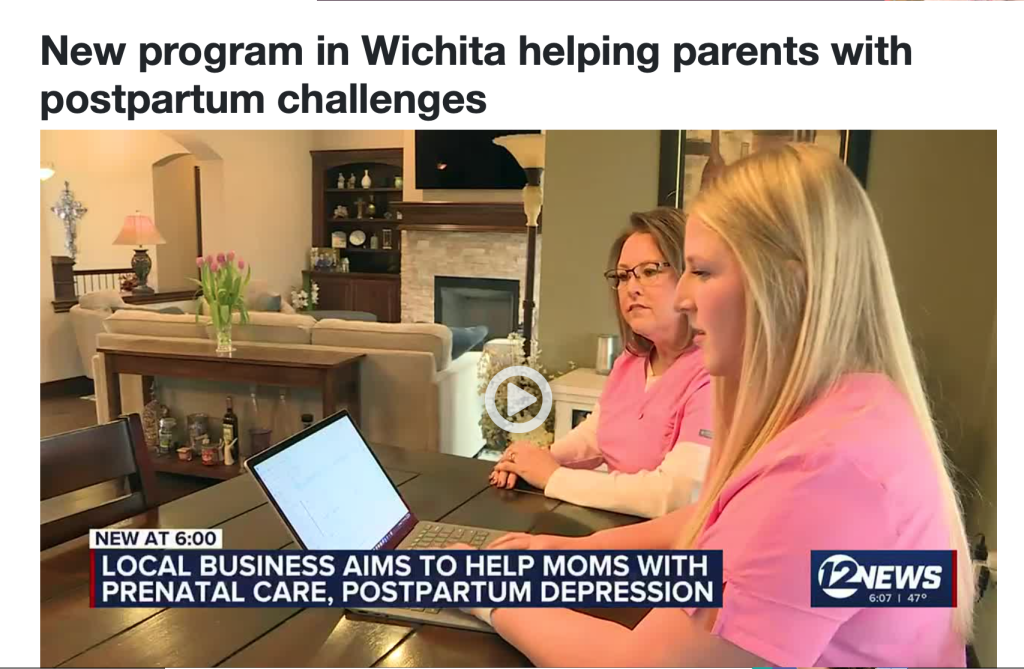updated- May 4, 2023 The cloth versus plastic diaper debate is not as clear cut as it seems. Plastic is known to be bad for the environment but cloth diapers while overall better for the environment do require more hot water to kill germs and adds to the mental load of parents. Written by postpartum doulas and night nannies, this blog Cloth, Hybrid and Biodegradable Diapers is overview of diapering options so parents can make the decision that works for them.
First things first-
We are all just doing our best! If you’re eco-conscious but cloth diapering seems like 1 more thing you can’t put on your plate, that’s okay! You can:
- Try cloth diapering when the amount of diapers subsides a little or become more predictable.
- You can use cloth diapers during the day and then disposables at night.
- You can cloth diaper but keep a stash of disposables for grandparents, postpartum doulas or night nannies to use.
Cloth, Hybrid and Biodegradable Diapers – Which is Really the Best for the Environment?
There have been several recent studies comparing the environmental impact of cloth and disposable diapers, and while cloth diapers emerge as the winner, the results are often complex and depend on various factors. Here’s what we mean:
- A 2019 study compared the environmental impact of cloth and disposable diapers in the United States. Cloth diapers have a lower environmental impact but only if they are washed in cold water and line-dried instead of using a dryer.
- Overall, cloth diapers have less environmental impact, particularly because they do not take decades to break down. They may not be ethical if the family is not in a drought prone area and these are considerations for individual families.
- The Environmental Working Group also notes that harmful chemicals in plastic diapers can affect baby’s health.
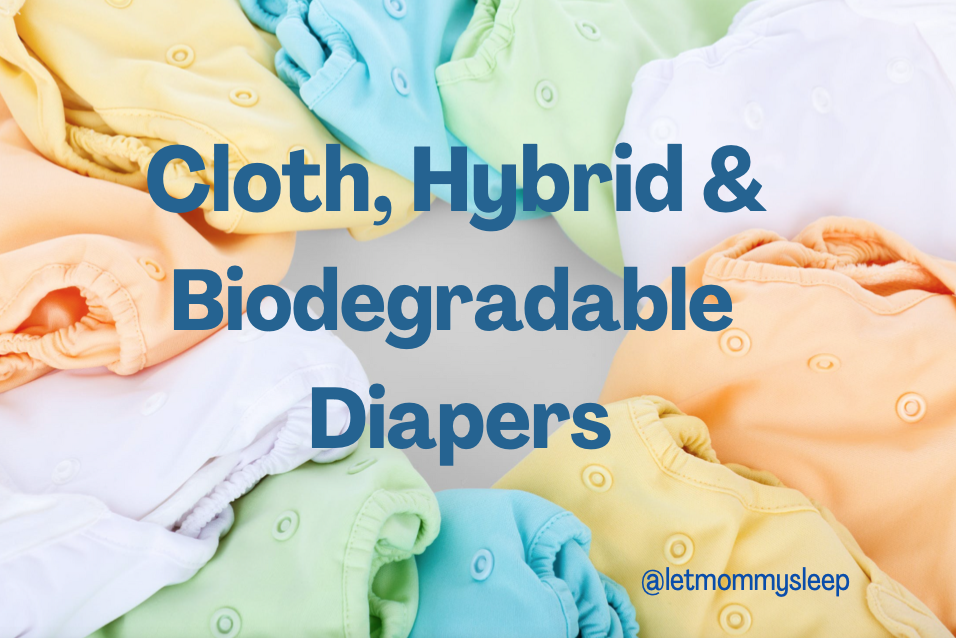
Cloth, Hybrid and Biodegradable Diapers – FAQ’s
How Exactly Do I Cloth Diaper?
Instead of one plastic disposable diaper, a cloth diaper is 2 parts. The reusable outer shell is on the outside and then a towel-like insert on the inside. The insert can be washed and reused again and again. Simply throw the insert in the wash and replace with a clean one the same way you throw the dirty diaper in the trash and replace with a new one.
The shell protects baby’s skin from waste and holds the insert. The insert actually absorbs and holds the urine/poo. After the insert is used you can place it in your diaper pail, but if it’s a “poo diaper” you’ll want to dispose of the actual waste in a toilet first. If you’re out and about or not near your home diaper pail, you can use a plastic diaper bag to hold the wet diaper until you get home to dispose of the waste and wash the insert. (Yes, it’s a *plastic* bag but that’s okay! As our friend Voltaire said, “Don’t let perfect be the enemy of good!”)
What’s a Hybrid Diaper?
A hybrid diaper has a reusable shell just like a traditional cloth diaper system but uses disposable inserts, usually made of cotton. So you keep the shell but flush, throw away, – or if you have the time and room – compost the inserts. Unless you are composting, there is no need to “scrape” the diaper of its contents, you simply throw away the insert with the waste inside, just as you would a plastic diaper. Any cloth diaper brands can use the disposable inserts.
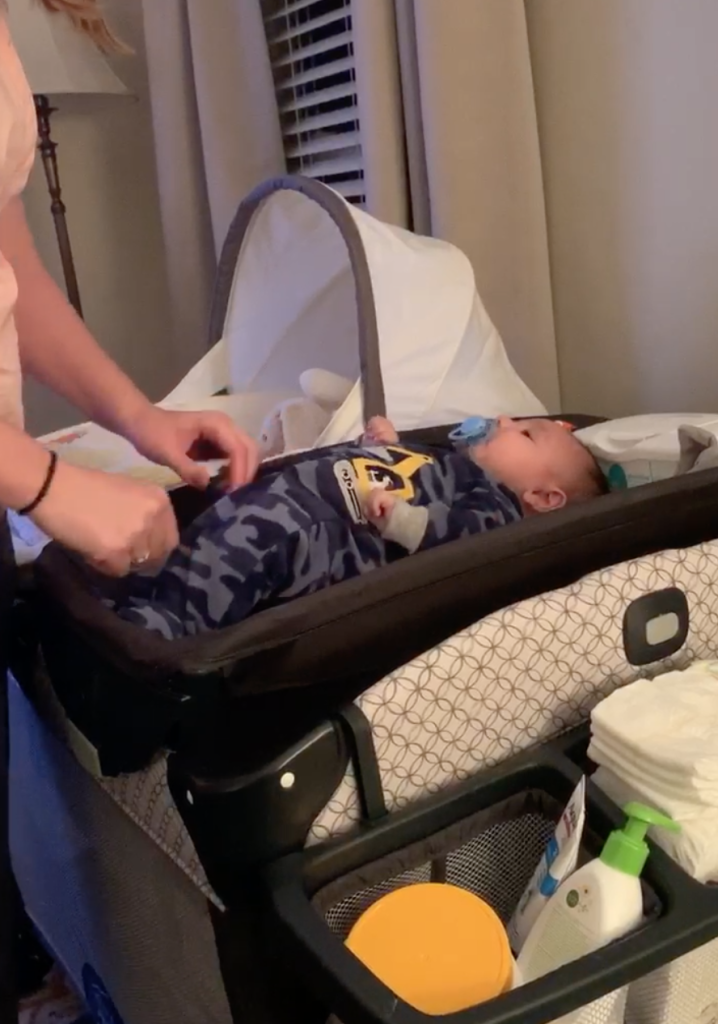
Cloth, Hybrid and Biodegradable Diapers – I have twins…what diapers should I use?
Like anything, cloth diapering takes a little practice. Many twin parents find the cost savings of cloth diapering to be worth the learning curve. Think about it – twins use a minimum of 5,000 diapers per year! One mom of 5 including a set of twins on Twiniversity has a tip. “The upfront cost is more, so I would suggest purchasing a small “stash” and trying it out for the period of time it would take to recoup the cost.”
What about Grandparents or Babysitters that Don’t Want to use the Cloth Diapers? And what if I change my mind?
If baby is going to stay with a caregiver who isn’t confident using cloth diapers, that’s okay! It’s also fine if you try it and don’t want to cloth diaper forever. You can still be green by using biodegradable diapers. There are other planet friendly products such as organic diaper creams or reusable DIY wipes too! And if you are committed to one way of diapering, it’s FINE if you are able to do it your chosen way most of the time. Allow others to do what they are comfortable with.
Diapering is just like any other parenting choice. Cost, convenience, comfort and social responsibility can be taken into consideration. Whatever decision you make will be the right one for your family.
For more info, our Amazon Shop contains everything you’ll need to make cloth diapering easy…and cute! Amazon.com/Shop/LetMommySleep
